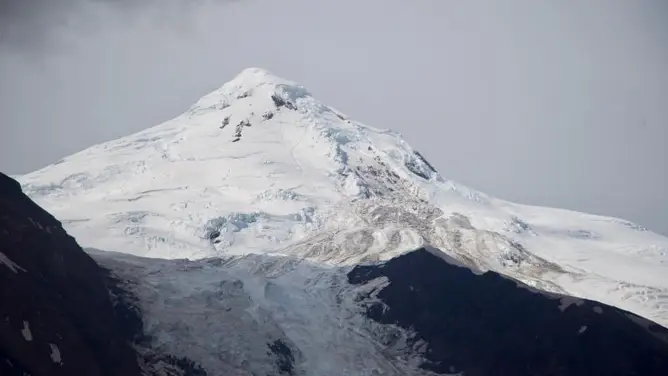Scientists are keeping a close eye on Mount Spurr, a massive volcano about 75 miles west of Anchorage, after noticing an uptick in seismic activity and changes in the landscape. These signs suggest the volcano could be waking up.
According to the Alaska Volcano Observatory (AVO), thousands of small earthquakes have been detected in recent weeks, along with shifts in the terrain. While this doesn’t mean an eruption is guaranteed, it does indicate that something is happening beneath the surface.
Experts say that before an eruption, there would likely be more warning signs—like stronger earthquakes, increased ground movement, and changes in the summit lake and steam vents. Right now, scientists are closely monitoring these indicators.
Mount Spurr stands at around 11,000 feet and is known for its explosive eruptions. Fortunately, it’s in a remote location, meaning lava flows and landslides wouldn’t directly impact many people. However, past eruptions have shown that the real concern is ash.
In 1992, a major eruption sent a thick ash cloud into the sky, shutting down airports in Anchorage and causing chaos for trans-Pacific flights. Volcanic ash is particularly dangerous for airplanes, as it can damage engines and reduce visibility, creating a serious safety hazard.
Alaska has more than 130 volcanoes, but only about 54 are currently considered active. Major eruptions are rare, but when they do happen, they can have widespread effects.
Right now, weather conditions near Mount Spurr’s summit are making it tough to get a clear view, as thick clouds and winter storms are limiting visibility. Still, scientists are watching closely and will provide warnings if the situation escalates.
If Mount Spurr does erupt, it would likely be similar in scale to its past eruptions in 1953 and 1992, with the biggest concerns being air and water quality in southern Alaska. For now, it’s a waiting game, but experts are ready to sound the alarm if needed.





